YOU ARE LEARNING:
Factorising Harder Quadratic Expressions

Factorising Harder Quadratic Expressions
In some quadratic expressions, the coefficient of the squared term is more than one.
Have a look at this example
What is the coefficient for x2 in this quadratic expression?

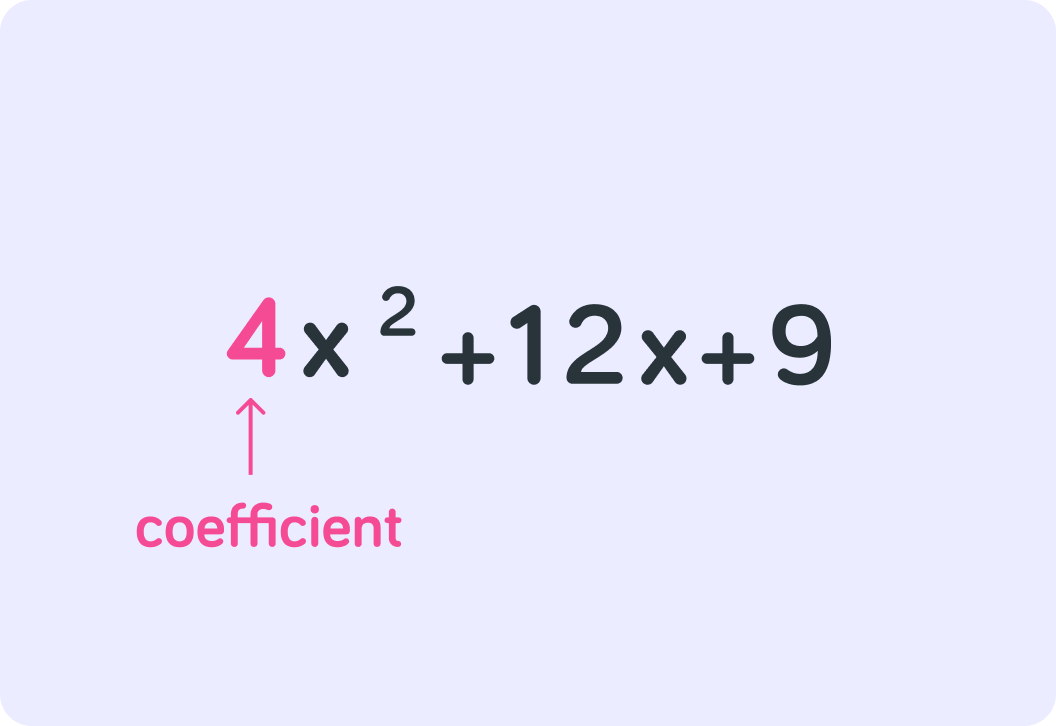
When x2 has a coefficient, you factorise a quadratic expression into the form (ax+b)(cx+d)
First you want to find out what ax and cx might be.
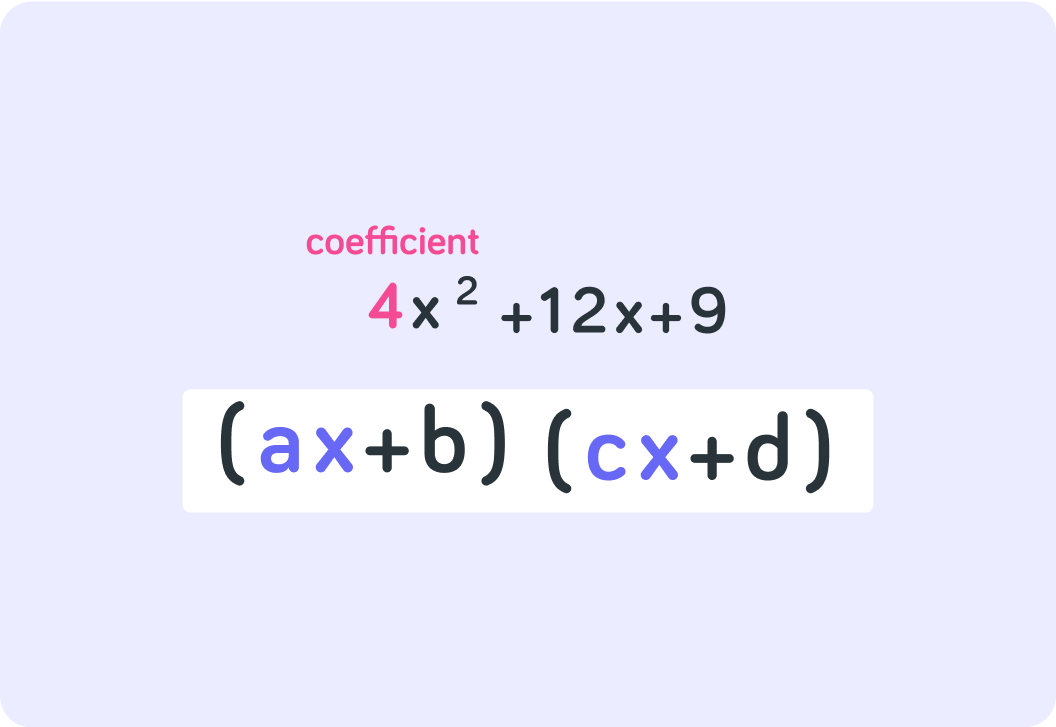
ax multiplied by cx have to give 4x2. Which 2 of these options equal 4x2?


You can select multiple answers
So there are two options for what ax and cx are in the factorised expression
You will come back to finding out which option is the correct one in a minute.
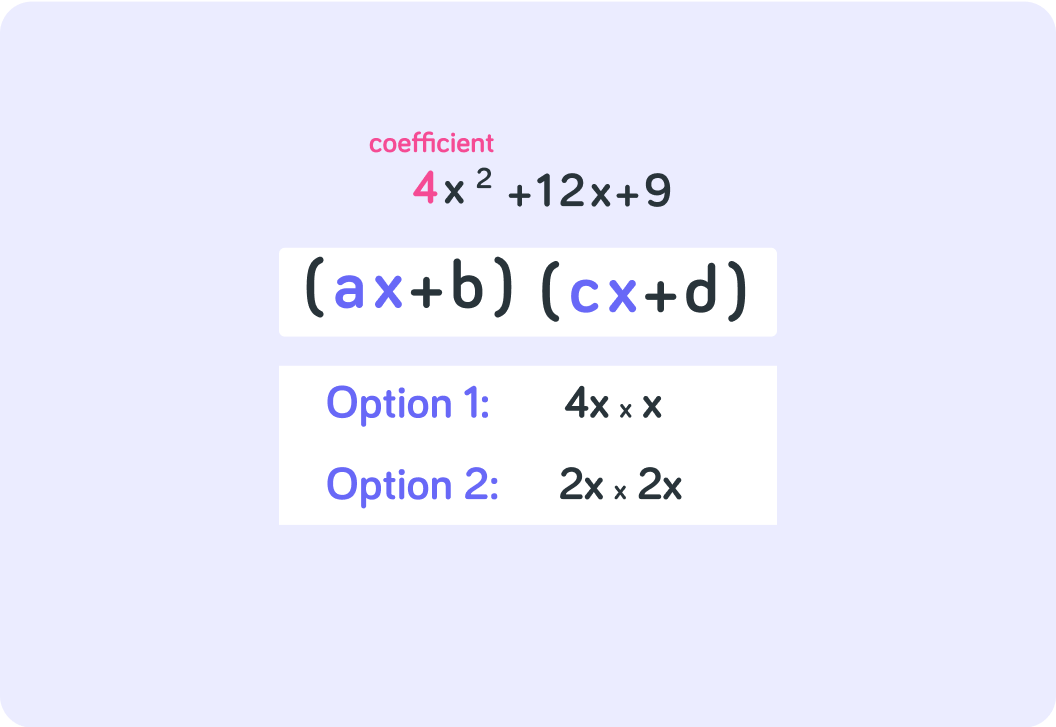
Now you look at b and d. When they are multiplied, they have to equal 9. Which 2 of these options fulfil that?

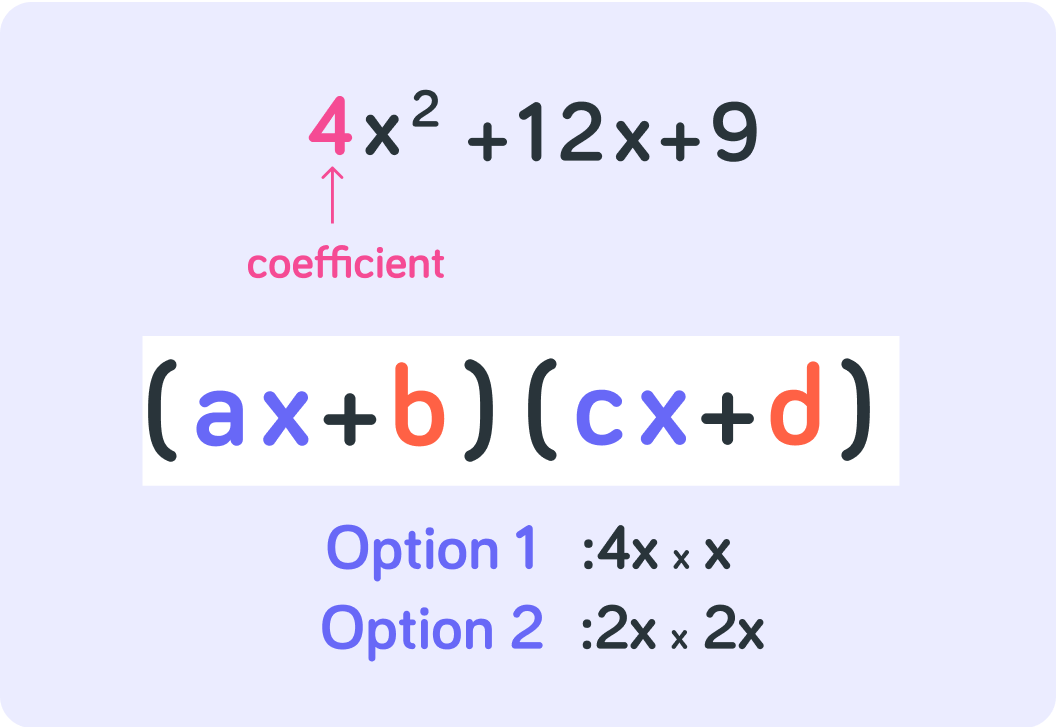
You can select multiple answers
So there are also two options for what b and d are in the factorised expression
That means there are 4 options for what the factorised expression might be!
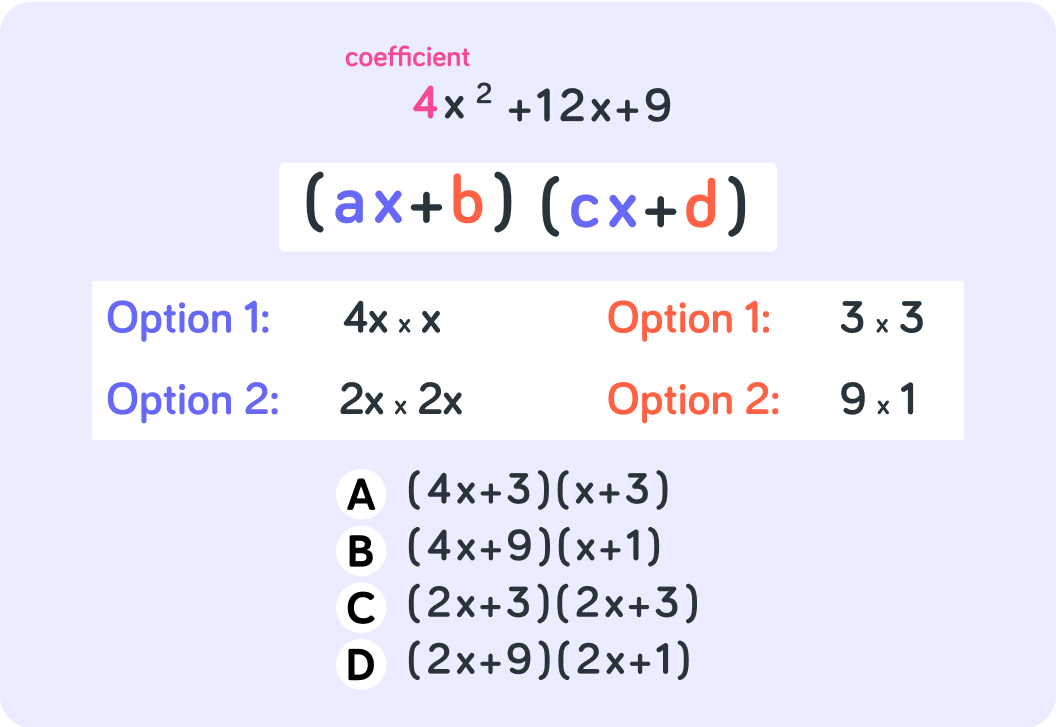
The correct factorised expression results in 4x2+12x+9 when you expand the brackets. Which one of the options is that?


So option C is the correct factorisation of 4x2+12x+9
The other options don't give you the correct expression when you expand the brackets.
Option A gives you 4x2+15x+9
Option B gives you 4x2+13x+9
Option D gives you 4x2+20x+9
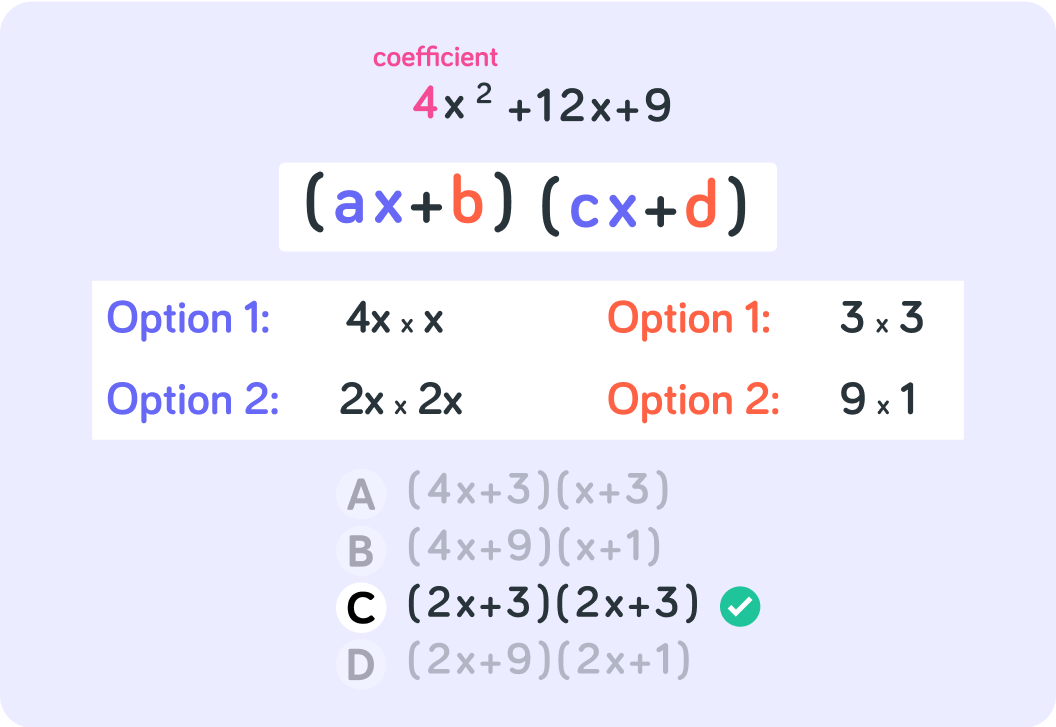
Recap! Sometimes x2 in a quadratic expression will have a coefficient in front of it. There are 3 steps to factorising the expression then.
First you find options for ax and cx
If you multiply ax and cx is should equal the first term in the original expression.
Here the first term is 6x2, so the options are 2x×3x and 6x×x
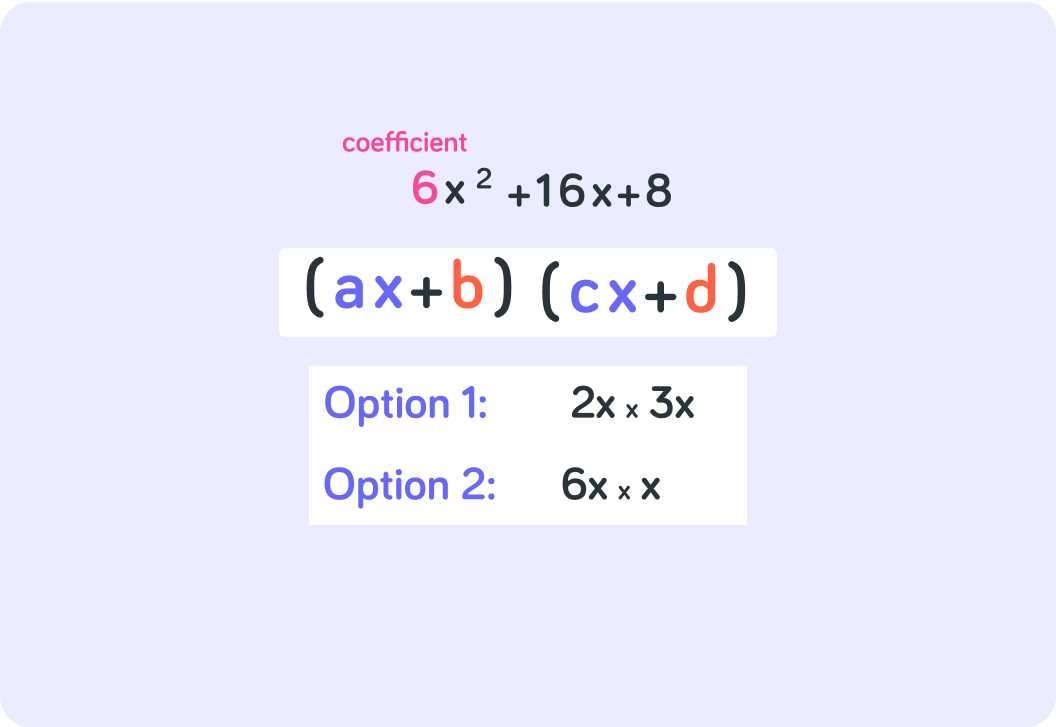
Then you look at options for b and d
If you multiply b and d it should equal the last term in the original expression.
Here the last term is 8, so the options are 4×2 and 8×1
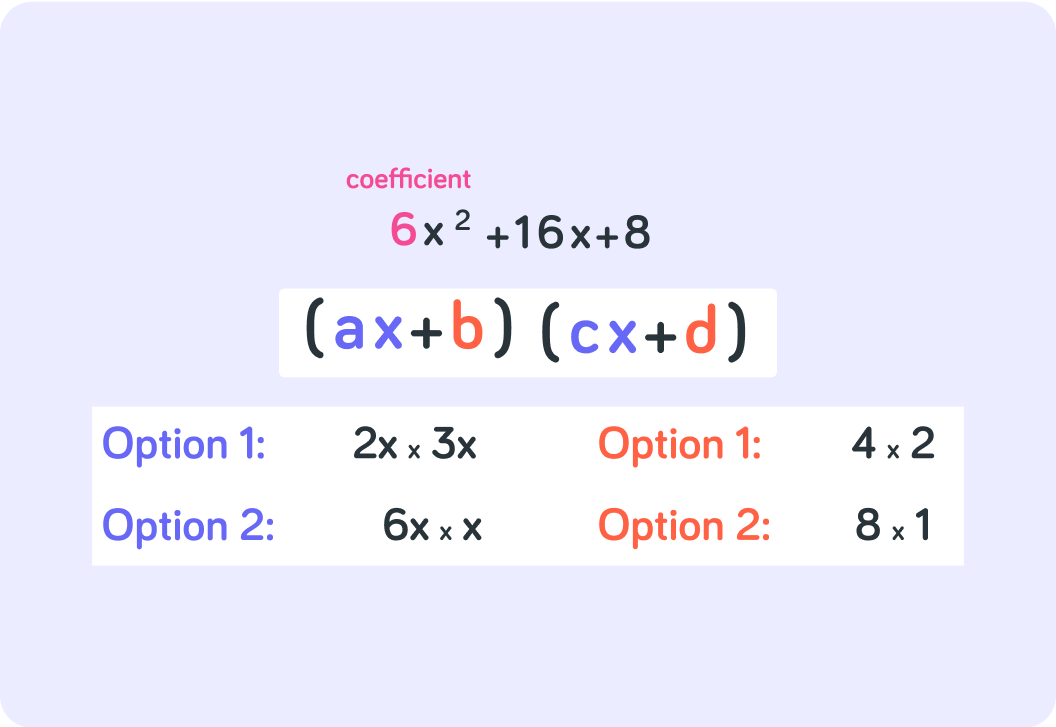
Finally, you can now expand all the options to find out which option is correct
In this example, that is the option where the middle term is 16x once you have expanded the brackets and simplified the expression.
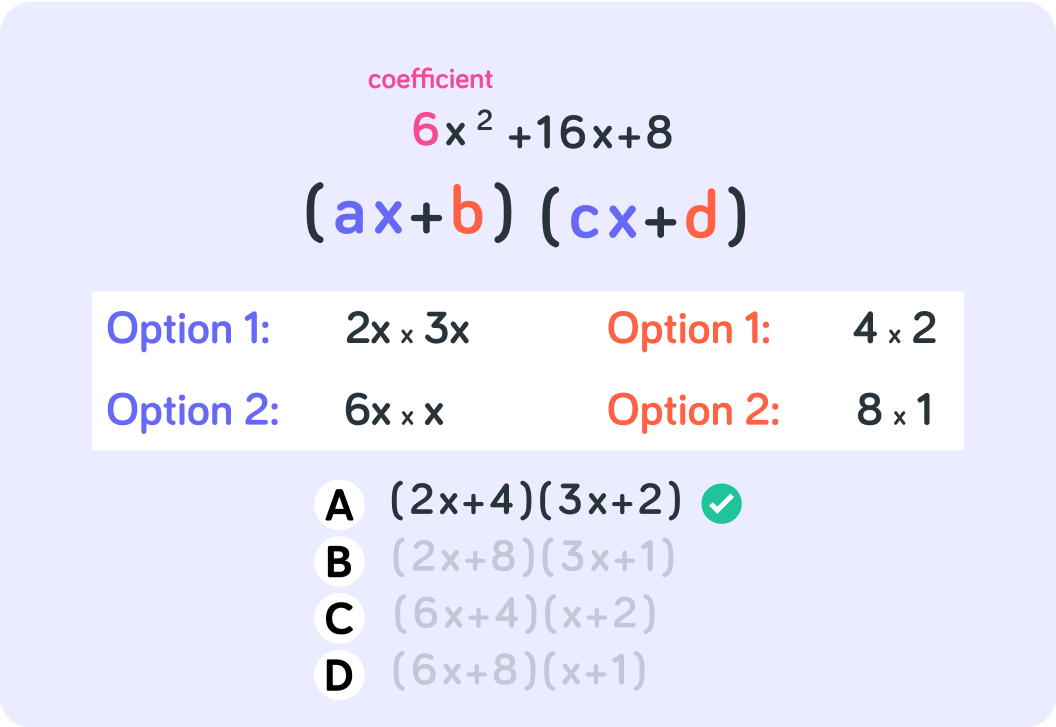
What is the correct factorisation of 9x2+11x+2?

Factorise 2x2+10x+8 into the form (ax+b)(cx+d)

Now take a look at this example
Here one of the terms is negative
You need to factorise so that you will end up with −12x as the middle term.
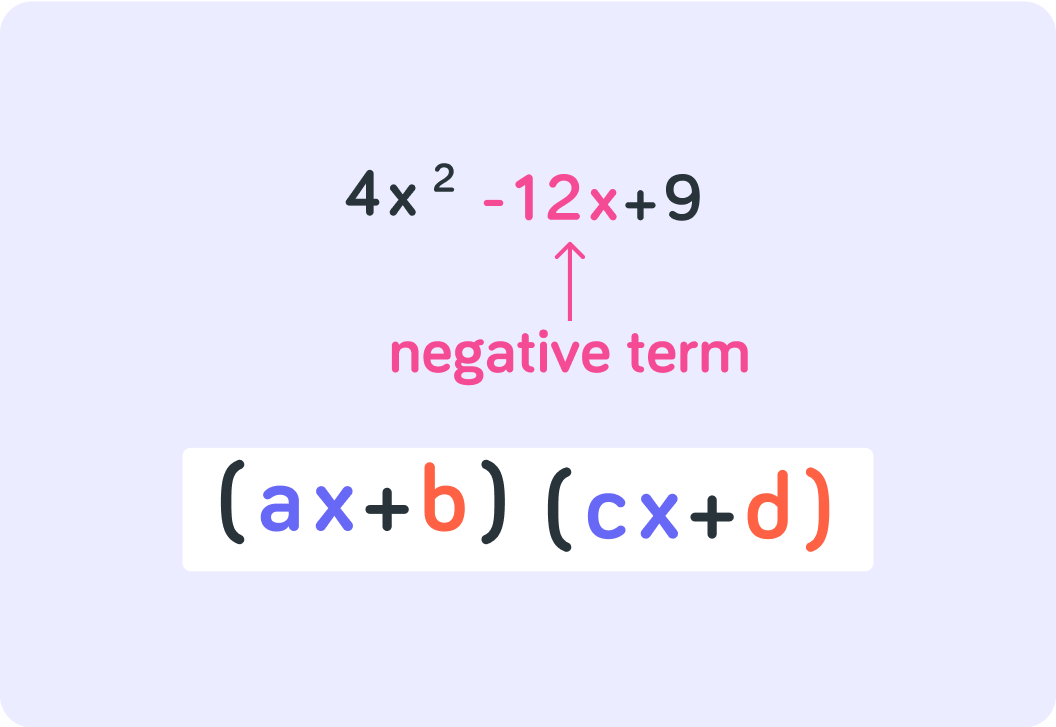
True or false? If ax, cx, b and d are all positive, all terms will also be positive once you have expanded the brackets.


So to get to a negative term when you expand the brackets, at least one of the terms in the factorised expression has to be _____________.


First you find the options for ax and cx
They are either 4x×x or 2x×2x
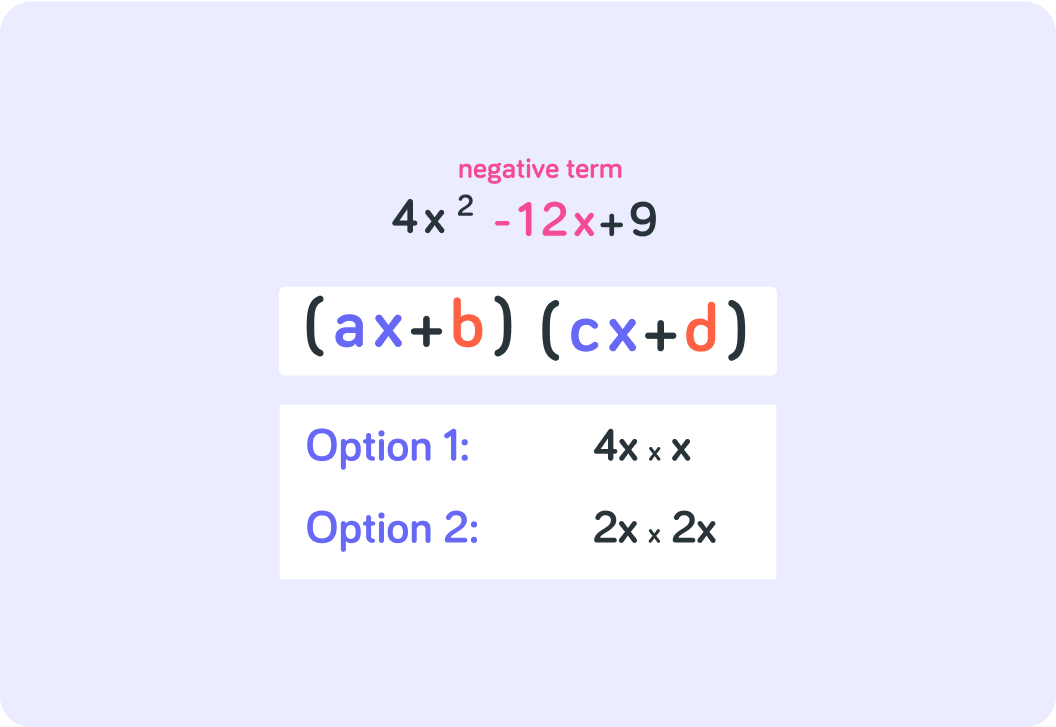
Now, the options for b and d have to make +9 when multiplied. Pick all the options below that equal +9


You can select multiple answers
So there are actually 4 options for b and d
Two pairs of positives and two pairs of negatives.
You could also write the options as ±3×±3 and ±9×±1 to save space.
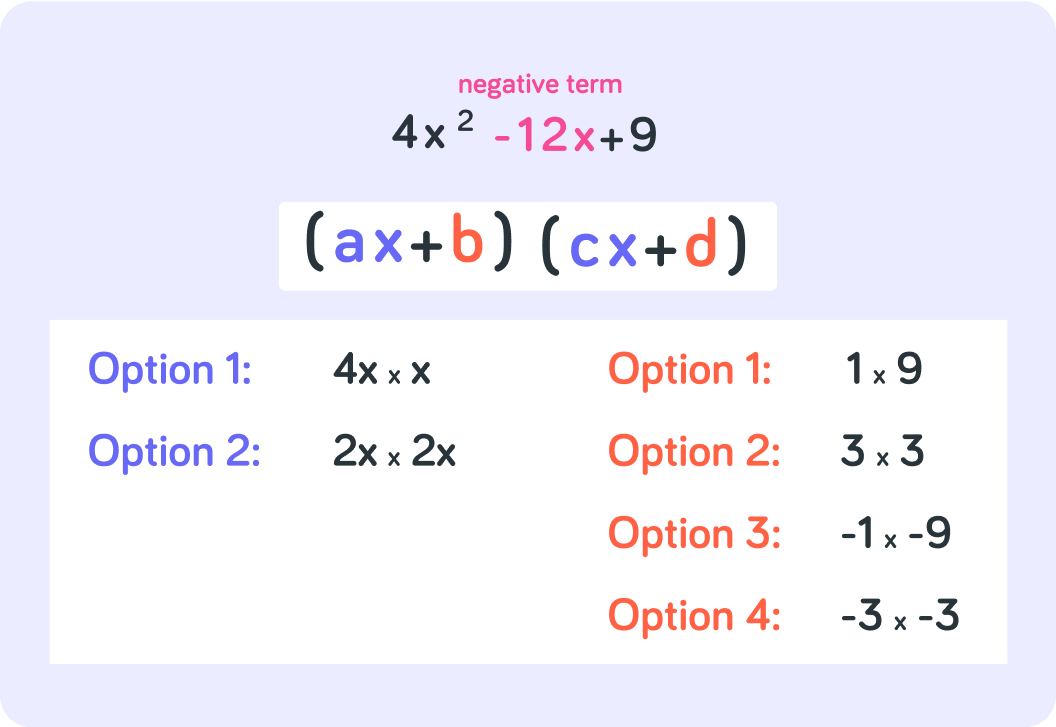
You can exclude two of these pairs as correct options for b and d. Which ones?


So now you are down to two options for b and d. That gives you 4 options for factorised expressions. Which one is the correct one?

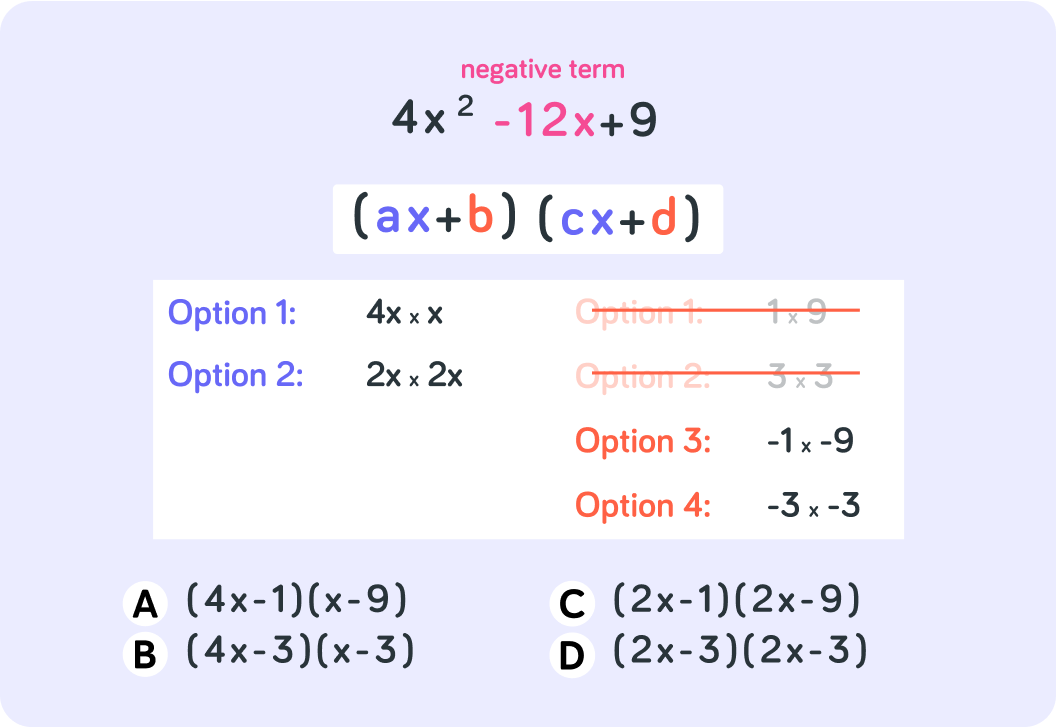
So when one of the terms in the original expression is negative, at least one of the terms in the factorised expression has to also be negative
Here both b and d are negative, because when they are multiplied they have to give the positive number +9
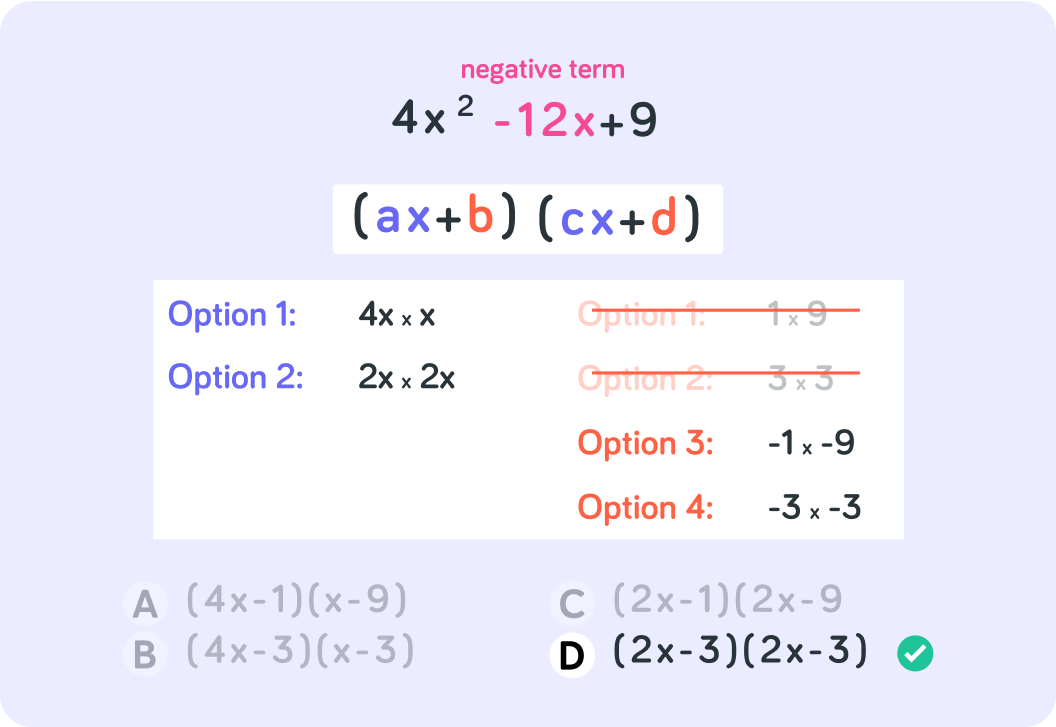
What is the correct factorisation of 6x2+19x−7?

Factorise 5x2−22x+8 into the form (ax+b)(cx+d)

Summary! There are 3 steps to factorising these harder quadratic expressions where there is a coefficient in front of x2
First you find options for ax and cx
If you multiply ax and cx is should equal the first term in the original expression.
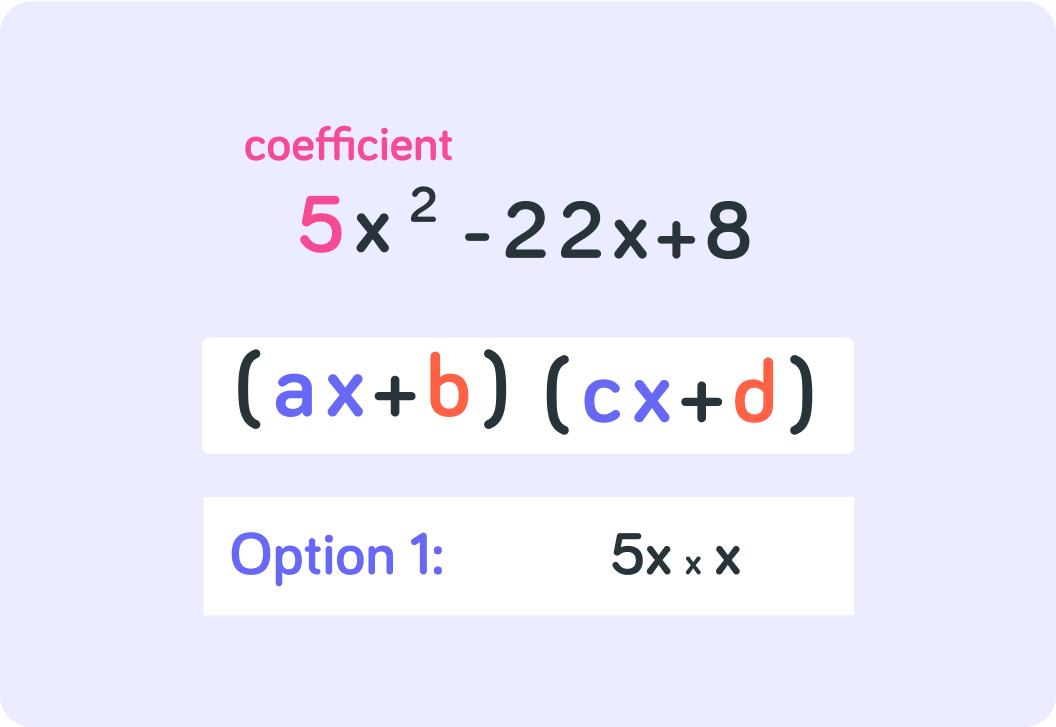
Then you look at options for b and d
If you multiply b and d it should equal the last term in the original expression.
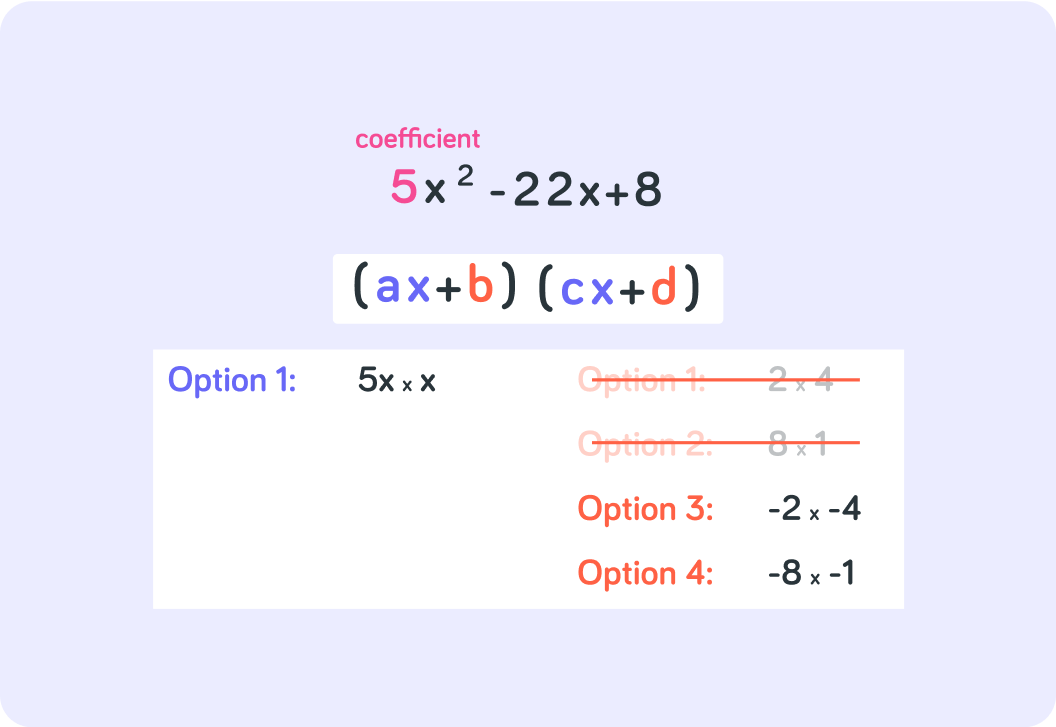
Finally, you can now expand all the options to find out which option is correct
In this example, that is the option where the middle term is −22x once you have expanded the brackets and simplified the expression.
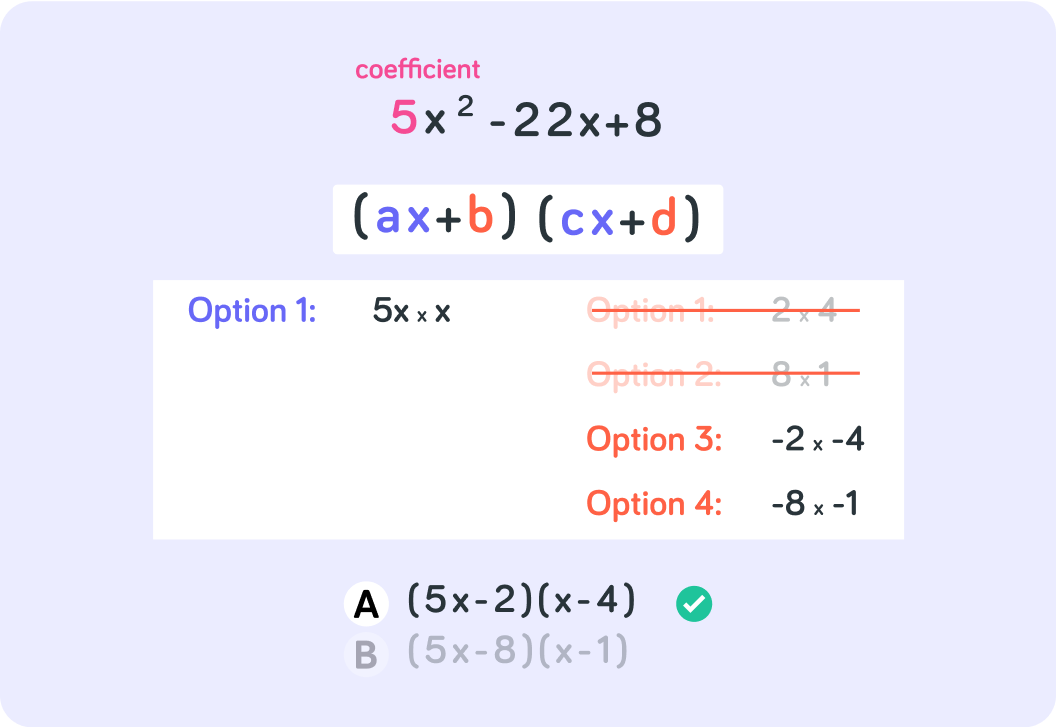
When one of the terms in the original expression is negative, at least one of the terms in the factorised expression has to also be negative
If you only have positive terms, all terms will be positive when you expand the brackets.

